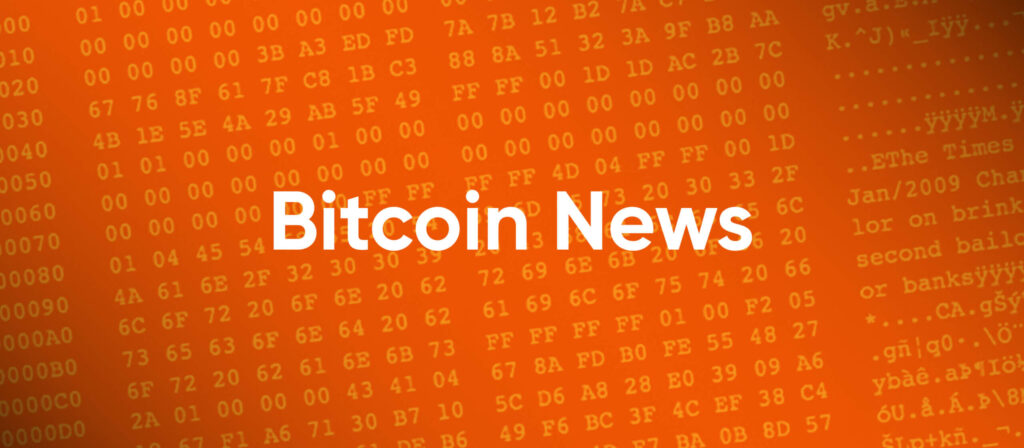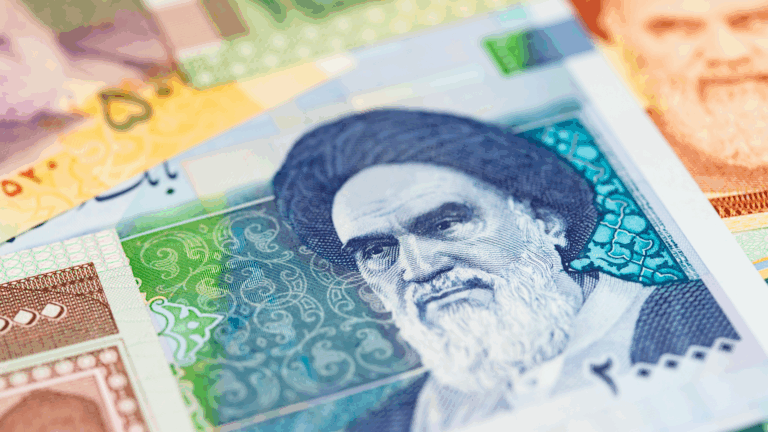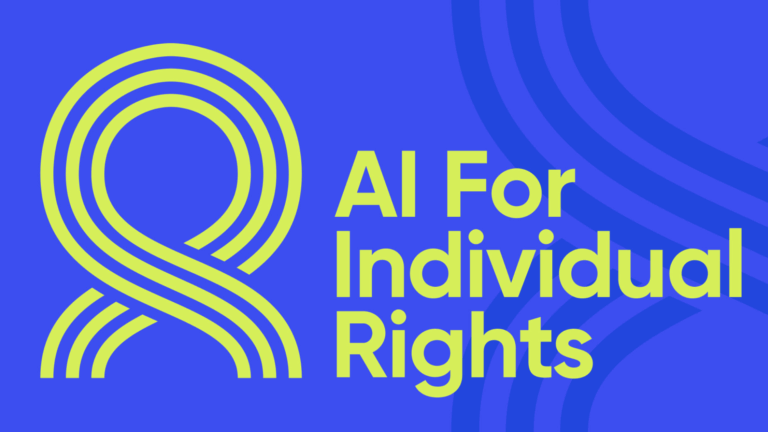The Financial Freedom Report is a newsletter focusing on the role currency and banking play in the civil liberties and human rights struggles of those living under authoritarian regimes. We also spotlight new tools and applications that can help individuals protect their financial freedom.
Good morning, readers!
In Nigeria, the director general of the Securities and Exchange Commission announced the government’s intention to delist the naira from peer-to-peer platforms, a move that would effectively trap the public inside the failing currency. Elsewhere, in Georgia, the ruling party pushed forward with a “foreign influence” bill that would require media and nonprofit organizations receiving 20% of their funding from abroad to register as foreign agents. Citizens view this as a Kremlin-inspired bill aimed at supplanting dissent and undermining democracy.
In the realm of financial privacy, individuals relying on Bitcoin privacy technology are finding themselves with fewer and fewer options. The popular Bitcoin wallet, Wasabi Wallet, discontinued its coinjoin service, heightening risks for human rights defenders who depend on it for preserving transactional privacy under authoritarian regimes. At the same time, however, new proposals are being made to strengthen Bitcoin privacy in a variety of ways.
We conclude with a video by macroeconomist Lyn Alden, who explains how financial systems can often run against the concerns of human rights. The second is an article in Forbes, warning that central bank digital currencies give governments unprecedented power to dictate how and when citizens use and spend their money. In the wrong hands, this remains, obviously, a human rights issue.
Now, let’s dive right in!

Nigeria | Government to Trap Citizenry in Collapsing Naira
Emomotimi Agama, the director general of the Nigerian Securities and Exchange Commission, disclosed the government’s intention to delist the local currency, the naira, from peer-to-peer platforms, supposedly to combat “currency manipulation” in the foreign exchange market. In effect, this means that citizens will be increasingly trapped in the local currency. This move is part of a larger crackdown that has already seen the imposition of a cap on the selling price of the naira on Binance, the country’s most popular cryptocurrency exchange, as well as hints at a total shutdown of the service. P2P platforms with access to Bitcoin have become crucial for Nigerians looking for alternatives to the failing naira and ways to preserve purchasing power. By removing the naira from P2P platforms, the regime is essentially trying to cut off all exit ramps, forcing their citizens to use a collapsing currency. P2P Bitcoin use is one of the only ways out.
Burma | Potential Military Draft Amid Financial Repression
Burma’s military junta imposed a travel ban on all conscription-age men (18 to 35 years old) seeking to work abroad, amid public fears of a potential military draft law. Following a series of regime defeats to rebel forces, the military is growing desperate to maintain power, forcing civilians to take up arms against the resistance. Since the 2021 coup, junta-controlled banks have shut down branches in regions captured by resistance forces, and officials have threatened to prosecute those who traveled to nearby towns to withdraw cash. Last year, to finance its operations, the cash-strapped militia increased utility bills and mandated that migrant workers remit at least 25% of their earnings in foreign currency, a tactic also used by the Cuban regime through its “MLC” system. These measures, combined with forcing civilians to fight and restricting opportunities to work abroad, compound the dire financial repression that Burma’s civilians must live with.
Georgia | Advances “Foreign Agents” Bill
The ruling Georgian Dream Party advanced a controversial “foreign influence” bill mandating that media and non-commercial organizations register as “pursuing the interests of a foreign power” if they receive more than 20% of their funding from abroad. The bill passed by a vote of 83 to 23 in Parliament and passed during the second of three required readings (before being sent to President Salome Zurabishvili for approval). This move caused tension within the assembly, with one pro-government deputy throwing a book at opposition legislators while other opposition members were expelled. Outside the walls of parliament, tens of thousands protested the bill, likening it to repressive Russian laws curtailing the activities of nonprofit organizations fighting for democracy. “There are hundreds of such NGOs who have done so much good for Georgia, and now they face being stigmatized and possibly shut down,” one protester said. The approval of this bill is a red flag for the future of democracy and civil liberties in the country and heightens the importance of parallel ways to fund human rights and democracy groups.
Turkey | Police Arrest Protestors Amid Labour & Financial Struggles
In response to a ban on celebrating and protesting during International Workers Day in Istanbul’s historic Taksim Square, Turkish officials deployed more than 42,000 police officers throughout the city. These officers (including snipers) used tear gas and rubber bullets to disperse thousands of protesters demanding better working conditions and labor rights, which resulted in 217 arrests. The ban on protests in Taksim Square dates back to 2013, when it became a critical site for anti-government demonstrations. Despite the decade-long ban, Ozgur Ozel, leader of Turkey’s main opposition party, the Republican People’s Party (CHP), urged the rallies to continue. The Turkish Lira has lost more than 80% of its value against the dollar over the past five years. More than 53% of the population is unable to cover basic daily expenses, and 70% are struggling to afford food. If anything, dictator Recep Tayyip Erdoğan’s heavy-handed response to this year’s May Day protests reveals his intent to obscure the severe employment and financial difficulties faced by hard-working citizens.
Pakistan | Financially Oppresses Journalists
Numerous journalists have fled Pakistan to seek safety and financial stability in North America or Europe due to escalating threats and financial pressures back home. “Journalists in Pakistan are often killed or abducted, and many continue to work for meager salaries or no salaries at all,” a once-prominent Pakistani investigative crime reporter said. The Pakistani government is notorious for financially targeting dissenting voices. For instance, journalists critical of the regime may experience delayed or withheld payments, forcing them into financial hardship and self-censorship. Additionally, media outlets are sometimes cut off from funding, particularly when receiving foreign funding, limiting their ability to operate. The Pakistani government’s tactics to suppress and control the free press — through financial repression no less — are intensifying. Journalists worldwide are increasingly turning to Bitcoin to finance their investigative reporting efforts under dictatorships.

Wasabi Wallet | Shuts Down Coinjoin Service
Amid global regulatory uncertainty, zkSNACKS, the developers behind the widely used Bitcoin wallet, Wasabi Wallet, decided to shut down its coinjoin coordination service. While Bitcoin offers more privacy than traditional financial rails, its transparent ledger poses risks for individuals, particularly for human rights defenders who may be giving up sensitive information while conducting transactions on the network. For this reason, many rely on coinjoin, a privacy-enhancing technique that mixes multiple Bitcoin transaction inputs to obscure ownership of coins. For years, coinjoin has served as a powerful tool for human rights advocates operating in authoritarian states; without it, they are exposed to higher risks. With the Samourai and Wasabi services now shuttered or shut down, there are fewer options for activists. JoinMarket is one such peer-to-peer option, and others are being devised. For example, this week Bitcoin developer Super Testnet created the Emessbee protocol to allow individuals to do a coinjoin without a central coordinator. You can view the demo here.
Tether | Increases Compliance Measures with Chainanalysis
Tether, the issuer of the USDT stablecoin (a cryptocurrency pegged to the US dollar), is intensifying its measures to monitor cryptocurrency transactions. Teaming up with Chainanalysis, a blockchain analytics firm, Tether will aim to “methodically monitor transactions, offering enhanced understanding and oversight of the USDT market,” and “identify wallets that may pose risks or may be associated with illicit and/or sanctioned addresses.” It’s crucial to note that USDT is centralized, meaning Tether holds the power to monitor, freeze, or confiscate USDT at its own discretion. While USDT may serve as a refuge from currency crises for individuals wary of Bitcoin’s volatility (especially under authoritarian regimes), users need to know that their funds can be frozen at any time.
BIP 324 and 352 | Improving Privacy on the Protocol Level
Last week, at the bitcoin++ developer conference in Texas, Bitcoin core developer Stratospher showcased Bitcoin Improvement Proposal (BIP) 324, titled “P2P v2.” This proposal seeks to enhance privacy at the protocol level by encrypting messages exchanged between nodes, protecting them from potential surveillance by Internet Service Providers (ISPs) and government entities. Additionally, BIP 352, known as “Silent Payments,” allows senders to generate a unique address for each transaction while using a static public key from the receiver, enhancing transactional privacy. This technique makes it more difficult to trace payments back to the receiver on the blockchain. Together, these proposals could help enhance the security, privacy, and censorship resistance of Bitcoin transactions, especially for human rights defenders who need them most.
Cashu | First Ecash Progressive Web Application
Calle, the creator of the ecash protocol, Cashu, announced the upcoming launch of the first multi-currency Cashu ecash wallet as a Progressive Web App (PWA). This wallet not only enhances accessibility through its web-based format but also supports Bitcoin and US dollars. It allows users to send and receive ecash offline and includes backup seed phrases for security. Moreover, the wallet features mint discovery over the decentralized social protocol Nostr, facilitating decentralized connections to various Cashu mints. The implementation of Nostr Wallet Connect in the new web app enables users to “zap” (send) ecash over Nostr using Bitcoin over the Lightning Network. These advancements are a testament to the continued innovation of the Bitcoin space and equip users with a secure, private, and efficient new way to transact Bitcoin.
OpenSats & Spiral | Open-Source Development Grants
OpenSats, a Bitcoin charity that helps fund free and open-source development, announced a donation of $21 million from #startsmall, a public fund founded by entrepreneur Jack Dorsey. OpenSats also announced a long-term grant to Shashwat Vangani, a Bitcoin developer from India and a 2021 Summer of Bitcoin alumni. “This LTS grant will enable Shashwat to focus on the deployment of BOLT-12 within LDK, with a particular focus on blinded paths, invoice overpayments, and retrying invoice requests,” OpenSats wrote. Similarly, Spiral, a Bitcoin development company, confirmed its ongoing support for Bitcoin and Lightning developers Bitcoin Zavior and Matt Morehouse. Zavior’s grant will support his work on the Bitcoin Development Kit (BDK) and simplify Lightning integrations using Lightning Development Kit (LDK) nodes. Morehouse’s funding will support his work in improving the security and stability of the Lightning Network.
Recommended Content
How Money & Banking Work by Lyn Alden
Macroeconomist and author Lyn Alden simplifies the complexities of the global financial system in this 30-minute video and reveals how traditional banking and monetary policies often run counter to human rights. She traces the evolution of money from ancient barter systems to today’s central banking practices, focusing on the adverse impacts of inflation, capital controls, and fractional reserve banking on an individual’s savings. Drawing from personal experiences, Alden contrasts financial stability and access between developed and developing countries, such as the US and Egypt, and suggests reforms to enhance financial freedom and preserve purchasing power. This video is a helpful resource for anyone looking to understand the challenges of achieving financial freedom within a flawed banking system. Watch the full video here.
There is No Good Version of a CBDC by Norbert Michel
In the Forbes article “There is No Good Version of a CBDC,” Norbert Michel criticizes the optimistic views held by regulators on central bank digital currencies (CBDCs). Michel warns that CBDCs could drastically enhance government surveillance and control over personal financial activities, giving authorities unprecedented power to dictate how citizens use and spend money. He refutes claims of increased security, competition, and financial inclusion, instead asserting that they centralize economic power. “The problem, though, is that a CBDC centralizes the supply of money in a way autocratic governments have only dreamed about in the past,” he wrote. This article is a good read for anyone interested in understanding how CBDCs compromise individual privacy and financial freedom under the guise of technological advancement.
Oslo Freedom Forum | Reserve Your Spot
Human rights advocates from around the globe will take the Oslo Konserthus stage on June 3-5, 2024, to share their efforts to defy repression and speak out against injustice. This year’s theme, Reclaim Democracy, emphasizes the pivotal role every individual plays within the global movement for democracy. The Financial Freedom team is looking forward to creating a program track exploring the role open-source money plays in preserving our human rights and civil liberties. Use the code 2024OFF to get an early bird discount on your ticket.
If this email was forwarded to you and you enjoyed reading it, please consider subscribing to the Financial Freedom Report here.
Support the newsletter by donating bitcoin to HRF’s Financial Freedom program via BTCPay.
Want to contribute to the newsletter? Submit tips, stories, news, and ideas by emailing [email protected].
Purchase your ticket to the 2024 Oslo Freedom Forum, taking place June 3-5 in Oslo, Norway. Use the code 2024OFF to get an early bird discount.
The Bitcoin Development Fund (BDF) is accepting grant proposals on an ongoing basis. The Bitcoin Development Fund is looking to support Bitcoin developers, community builders, and educators. Submit proposals here.








